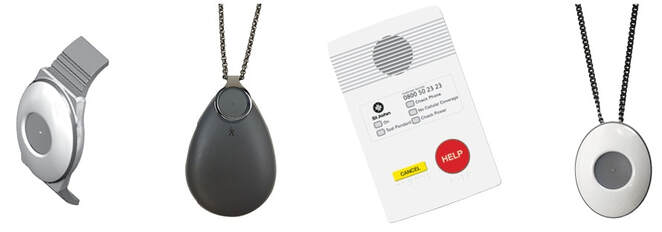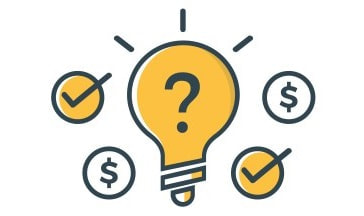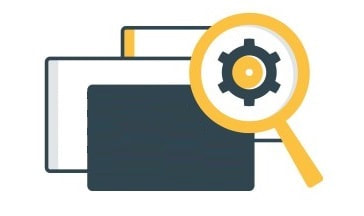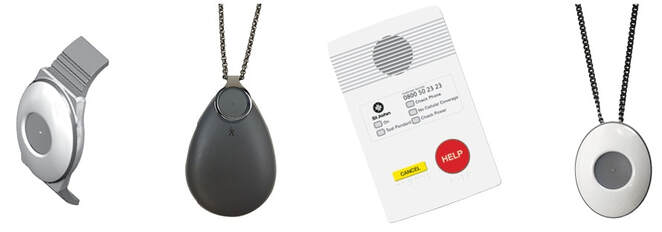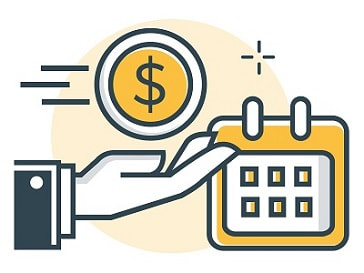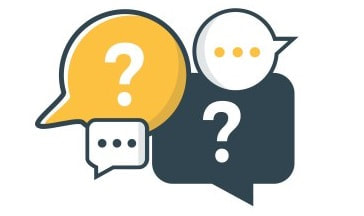The Best Medical Alarms & Costs and Funding Options - The Definitive New Zealand Guide
Our review and comparison explain medical alarm options designed to provide safety, independence, and peace of mind for New Zealanders
Updated 23 February 2024
Summary:
To help you understand the services, costs and different providers, as well as government assistance, our guide covers:
Important: Be wary of medical alarm providers charging exorbitant subscription fees or cancellation penalties
More Details:
Summary:
- With Kiwis living longer than ever, medical alarms are becoming increasingly popular given they play a vital role in ensuring New Zealanders' safety, security, and independence at the risk of medical emergencies or accidents.
- These personal emergency response systems provide a lifeline for seniors, people with disabilities, and those with chronic health conditions, allowing them to maintain their daily routines confidently. However, with many different companies offering medical alarms, as well as elderly Kiwis at the highest risk of targeted scams, it can be tough to know which medical alarm provider is best.
- Important: For this guide's purposes, we'll only focus on the five medical alarm suppliers accredited by the Ministry of Social Development for funding. We've chosen to focus on these suppliers as many companies may not provide quality alarms that fit the quality specifications determined by the government.
- The MSD-accredited medical alarm suppliers are deemed to be the ‘best-in-class suppliers’ and are usually the best choice for Kiwis looking for medical alarms at the highest quality with the most affordable prices.
- Try to put the cost of a medical alarm in a broader context - While medical alarms can be costly over long periods of time (think $750+ a year), they can be worth it if they can save your life or the life of a parent or family member. In addition, medical alarms can be a lifeline for elderly or disabled individuals living alone or at risk of a medical emergency.
- In case of a fall, heart attack, stroke, or another medical emergency, a medical alarm can summon help quickly and potentially save a life. The delay in getting emergency help from not having a medical alarm can be the difference between life and death.
To help you understand the services, costs and different providers, as well as government assistance, our guide covers:
- What is a Medical Alarm, What do they Look Like, and How do They Work?
- What are the Most Common Benefits of a Medical Alarm?
- Medical Alarm Providers – Comparing and Understanding the MSD-Accredited Suppliers
- Will the Government Subsidise My Medical Alarm?
- Frequently Asked Questions
Important: Be wary of medical alarm providers charging exorbitant subscription fees or cancellation penalties
- MSD-accredited medical alarm providers are unlikely to charge exorbitant fees or penalties due to their service agreements with MSD. If you feel you're being overcharged, there is a clear complaint process to raise your concerns.
- Choosing a non-MSD accredited provider can, in some cases, put you at a higher risk of being overcharged or overly penalised. To minimise the risks, we suggest always reading the terms and conditions if you decide not to go with one of the five MSD-accredited providers above.
More Details:
What is a Medical Alarm, What do they Look Like, and How do They Work?
Medical alarms are designed to provide peace of mind to elderly, disabled, and vulnerable Kiwis who live independently, and the devices are becoming increasingly popular due to New Zealand’s ageing population and the desire to live in one's home for as long as possible. In addition, medical alarms can help ensure that people get immediate help in an emergency, such as a fall, heart attack, or stroke.
How does a Medical Alarm work?
- Medical alarm systems have two components: A base unit connected to a network and a wearable pendant, which can be worn as a bracelet or necklace.
- Pressing a button on the pendant activates the alarm, prompting the base unit to reach out to the monitoring service.
- The maximum distance between the pendant and the base unit can be confined to your residence (e.g. within your house and garden) or extended beyond if you are active and often leave home.
- Upon activating your medical alarm, the provider will attempt to contact you. If you don't respond, the provider, depending on the company, may dispatch an ambulance to your residence or contact a family member or neighbour from a pre-arranged list.
Who needs or should consider getting a medical alarm?
A medical alarm can be beneficial for various individuals who may be at a higher risk of experiencing medical emergencies or accidents. The following groups of people are most likely to need a medical alarm:
- Seniors: As people age, the risk of falls, health issues, and accidents increases. Elderly individuals, especially those living alone or with limited mobility, can benefit from a medical alarm to ensure timely assistance in case of emergencies.
- People with chronic medical conditions: Individuals with ongoing health problems, such as diabetes, heart disease, or epilepsy, may require immediate medical attention during emergencies. A medical alarm can help them get prompt assistance when needed.
- People with disabilities: People with physical or cognitive disabilities may struggle to access emergency help. A medical alarm can provide an easy way for them to alert caregivers or emergency services when assistance is required.
- Individuals recovering from surgery or major medical procedures: Patients may experience complications or need help with day-to-day activities during the recovery period. A medical alarm can offer a safety net during this time.
- People prone to falls or accidents: Kiwis with frequent falls or accidents, or those with balance and mobility issues, can benefit from a medical alarm system. Some systems also offer automatic fall detection, which can be particularly helpful in such cases.
What are the main features of medical alarms?
Medical alarms come with different features, depending on the type and brand. However, some of the key features present in most (MSD-accredited) medical alarms include:
- 24/7 Monitoring: Most medical alarms will have a monitoring centre staffed by trained professionals who are available 24/7 to respond to emergency calls. This ensures that users receive prompt assistance whenever required, no matter the time or day.
- Two-way communication: The base unit generally features a built-in speaker and microphone, allowing the user to communicate directly with the monitoring centre during an emergency. This feature helps establish the nature of the emergency and allows for emotional support during the crisis.
- Automatic fall detection: Some wearable alarm pendants or bracelets are equipped with a fall detection feature, which can automatically alert the monitoring centre if the user experiences a sudden fall. This feature is particularly useful for those who cannot press the button themselves following a fall (which is relatively common if the fall is severe).
- Water-resistant design: The wearable alarm button is generally water-resistant, allowing users to wear it while bathing or engaging in water-based activities. This ensures continuous protection, even during potentially hazardous situations.
- GPS tracking: Some Medical Alarm devices also come equipped with GPS tracking, enabling the monitoring centre to pinpoint the user's exact location in an emergency. This feature is especially useful for those prone to wandering or living alone.
- Battery life: Most medical alarms will work for an extended period without recharging. However, the battery life of some pennants can vary depending on the model and make.
What are the Different Tiers or Packages for Medical Alarms?
Medical alarm providers offer a range of options to suit different budgets and requirements. Some of the packages available include:
- Basic package: This package usually includes essential features, such as the wearable alarm button, base unit, and 24/7 monitoring.
- GPS package: This package usually includes all the features of the Basic package, along with GPS tracking capability. This is especially useful for users who may be prone to wandering or who would like their location to be easily accessible during an emergency.
- Fall detection package: Generally, this package incorporates the fall detection feature and the Basic package offerings. This is particularly beneficial for users who are at risk of experiencing falls or those with limited mobility.
- Comprehensive package: Comprehensive packages generally offer the full range of medical alarm features possible, including the features of the Basic, GPS and Fall detection packages detailed above.
What are the Most Common Benefits of a Medical Alarm?
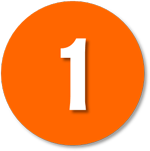
|
Medical alarms are relatively easy to set up and use.Most medical alarms are designed to be easy to set up and use, even for individuals who aren’t tech-savvy. The user simply needs to plug in the base unit and follow the instructions to connect the alarm to the telephone line. In addition, wearable devices like a watch or pendant typically include a large, easy-to-press button to summon help.
|
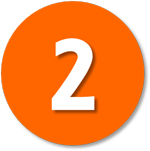
|
Medical alarms can provide peace of mind to caregivers (or yourself).Medical alarms can provide peace of mind for individuals and their loved ones, knowing that help is just a button press away. In addition, knowing that emergency services or a designated caregiver can be summoned quickly in case of an emergency can help alleviate anxiety and improve quality of life. Further, with the assurance that help is readily available, Kiwis can enjoy greater independence and maintain their current lifestyle without fear of being stranded during an emergency.
|
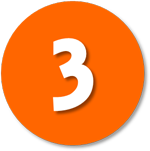
|
MSD-accredited medical alarms come with high-quality customer support, better service and faster response times (by law).All MSD-accredited medical alarm providers must provide minimum quality customer support and service. Most providers will have benchmarks on responsiveness time as well as offer regular maintenance and testing of their devices. Some of the support services provided by the MSD-accredited medical alarm providers include:
|
Medical Alarm Providers – Comparing and Understanding the MSD-Accredited Suppliers
- When it comes to choosing the best medical alarm in New Zealand, there are many brands to choose from. Each brand has unique features and benefits, making it important to consider each one carefully before deciding.
- There are currently five key MSD-accredited medical alarm suppliers in New Zealand. The below cost table reflects the standard pricing under the MSD Service Level Agreement for Accredited Suppliers of Monitored Medical Alarms. This agreement ensures you receive high-quality service and value for money (and are far less likely to get “ripped off” if you choose to purchase a medical alarm with one of these suppliers).
- Many individuals obtain their systems from providers accredited by the Ministry of Social Development (MSD). Accredited suppliers must adhere to established service standards, possess an approved complaint process, and offer the alarm system at a reasonable cost (typically around $15 per week). Upon signing up, the medical alarm provider must provide you with a contract detailing their services and complaint process.
Medical Alarm Provider or Supplier |
Contact Number |
Email |
The weekly cost for one "In-Home" alarm* |
The weekly cost for an additional "In-Home" alarm at the same address |
The weekly cost for one "Anywhere" alarm |
The weekly cost for an extra "Anywhere" alarm at the same address |
Trial Period |
Chubb New Zealand (VitalCall) |
$16.97 |
$7.36 |
$24.53 |
$10.52 |
N/A |
||
$15.32 |
$12.89 |
$16.50 |
$13.86 |
||||
$15.25 |
$0 |
$29.00 |
$25.00 |
7 Days |
|||
$15.75 |
$7.25 |
$23.50 |
$15.75 |
||||
$15.87 |
$5.52 |
$16.10 |
$16.10 |
N/A |
Our Top Alarm Recommendations
The two main criteria that most Kiwis are likely to choose an alarm on are cost and functionality. As such, based on the table above:
Most Cost-Effective Alarm: We argue that the Freedom Medical Alarm is the most cost-efficient alarm for those on a budget. Additionally, it doesn’t cost a cent more to have an additional alarm at the same address (unlike the other alarms listed). However, note that the Freedom medical alarm has one of the most expensive “anywhere alarm” costs (for those Kiwis that need a medical alarm when travelling out of home to the supermarket or the local cafe).
Most Reliable/Trustworthy Alarm: Regarding reliability and trust, we argue that the highest quality alarm is the St John Medical Alarm. Almost all Kiwis are familiar with the amazing work that St John does with regards to their Ambulance services. This, coupled with the longest trial period out of all five alarms means that Kiwis looking for a quality, reliable medical alarm they can rely on (and test out before they buy) suggests the St John Medical Alarm is a strong offering.
Ultimately, the most suitable alarm of the five accredited alarms will depend on what criteria matters the most to you or your loved one (such as price, reliability, ability to trial beforehand, whether you just need an at-home alarm or an anywhere alarm, number of alarms you’ll need at the location, etc.). Try to think about what criteria matters the most to you and pick the alarm that best caters to that.
Most Cost-Effective Alarm: We argue that the Freedom Medical Alarm is the most cost-efficient alarm for those on a budget. Additionally, it doesn’t cost a cent more to have an additional alarm at the same address (unlike the other alarms listed). However, note that the Freedom medical alarm has one of the most expensive “anywhere alarm” costs (for those Kiwis that need a medical alarm when travelling out of home to the supermarket or the local cafe).
Most Reliable/Trustworthy Alarm: Regarding reliability and trust, we argue that the highest quality alarm is the St John Medical Alarm. Almost all Kiwis are familiar with the amazing work that St John does with regards to their Ambulance services. This, coupled with the longest trial period out of all five alarms means that Kiwis looking for a quality, reliable medical alarm they can rely on (and test out before they buy) suggests the St John Medical Alarm is a strong offering.
Ultimately, the most suitable alarm of the five accredited alarms will depend on what criteria matters the most to you or your loved one (such as price, reliability, ability to trial beforehand, whether you just need an at-home alarm or an anywhere alarm, number of alarms you’ll need at the location, etc.). Try to think about what criteria matters the most to you and pick the alarm that best caters to that.
Will the Government Subsidise My Medical Alarm?
The government may cover the weekly expenses of your medical alert service if you have a persistent or age-related health issue and a disability, but any government assistance is means-tested. Therefore, the amount you receive will be based on your circumstances, such as your income and assets.
The government provides subsidies to those that meet eligibility criteria and are in need of assistance with the ongoing expenses of a medical alarm. These costs are covered as part of the Disability Allowance programme. A Disability Allowance can be obtained to aid with disability-related expenses, including medical alarms. You don't need to receive a benefit to qualify for a Disability Allowance, as summarised below:
Disability Allowance Eligibility Criteria
You can apply for a Disability Allowance for yourself, your partner, or a child.
To apply, the individual needing a medical alarm must:
A medical practitioner (Doctor or GP) must also verify that the individual who requires a medical alarm:
Additionally, your eligibility depends on your and your partner's income. Current income limits for Disability Allowance (as of April 2023) are as follows:
The government provides subsidies to those that meet eligibility criteria and are in need of assistance with the ongoing expenses of a medical alarm. These costs are covered as part of the Disability Allowance programme. A Disability Allowance can be obtained to aid with disability-related expenses, including medical alarms. You don't need to receive a benefit to qualify for a Disability Allowance, as summarised below:
Disability Allowance Eligibility Criteria
You can apply for a Disability Allowance for yourself, your partner, or a child.
To apply, the individual needing a medical alarm must:
- Be at least 16 years old and be a New Zealand citizen or permanent resident.
- Have a disability expected to last at least six months from diagnosis or,
- Have a life expectancy of fewer than six months due to a terminal illness.
- Have regular, ongoing costs related to their health condition or disability not fully covered by another agency.
A medical practitioner (Doctor or GP) must also verify that the individual who requires a medical alarm:
- Needs the medical alarm on an ongoing basis due to a disability.
- Requires either an 'in-home' or 'anywhere' medical alarm.
- Would have their life or health endangered without it, or the disability would be worsened.
- An MSD-accredited medical alarm supplier must provide the medical alarm.
Additionally, your eligibility depends on your and your partner's income. Current income limits for Disability Allowance (as of April 2023) are as follows:
Living Situation |
Other Criteria to Note |
Pre-tax Weekly Income Limits |
Single |
16-17 years old |
$631.50 |
Single |
18+ years |
$786.69 |
Sole parent |
One dependent child |
$880.73 |
Sole parent |
Two or more dependent children |
$927.94 |
Couple |
With or without children |
$1,171.42 |
How much money can I get from a disability allowance?
You can currently get a maximum of $75.10 per week for the Disability Allowance. The amount you’ll receive for your medical alarm depends on your situation - every person has different needs and therefore the money you'll receive varies. If you qualify, the government can cover the ongoing expenses of medical alarm services, such as:
Note that the Disability Allowance does not cover the following:
- 'In-home' medical alarm services that function solely within the home.
- 'Anywhere' medical alarm services that operate outside and inside the home.
- Whether you can obtain an 'in-home' or 'anywhere' medical alarm depends on a medical practitioner's recommendations.
Note that the Disability Allowance does not cover the following:
- Purchasing the medical alarm (one-time cost).
- Purchasing smoke alarms or security alarms.
- Any alarm costs are already included in the fee for living in a retirement village or complex.
- Additional items for your medical alarm, such as fall detectors or pressure pads.
Frequently Asked Questions
If you have any questions about a specific service, we suggest asking the provider - we have listed their emails and phone numbers in the table above.
What happens when I press the alarm button?
When you press the alarm button, you will be connected to a monitoring centre. The monitoring centre will assess your situation and dispatch the appropriate help, such as an ambulance or family member.
I'm currently on a disability allowance for a medical alarm. I already have an "in-home" medical alarm but would like an "anywhere" one. What's the process for me to get one?
If you possess an 'in-home' medical alarm (which functions only within your home) and would like an 'anywhere' medical alarm (operating outside your home), you'll need to talk to a medical practitioner (your GP) and get them to determine your initial eligibility. Once you've done this, you (or your GP) will be able to apply to work and income for an upgrade.
I'm a child of a parent that needs a medical alarm. I'm managing the process of getting one. Is it possible to apply for a disability allowance on their behalf?
Yes, you can apply for Disability Allowance on someone else's behalf, but only if they've filled out a form to appoint you as their agent. Check out more details for acting on someone’s behalf at Work and Income.
I’m retired but not eligible for the disability allowance. Can I use my SuperGold Card to get discounts?
If you’re ineligible for funding through Work and Income and need to purchase a medical alarm system yourself, your SuperGold Card might help you obtain discounts from select suppliers in certain regions. However, there’s no blanket policy around discounts on medical alarms using your SuperGold card.
Can I cancel my medical alarm service online?
Generally, no. Most medical alarm providers require you to call their customer service line and put in a cancellation request over the phone. Sometimes, the company may require you to submit a written cancellation request. If you want a refund or to avoid cancellation fees, this is the best time to ask the company.
I want to submit a complaint about a bad experience I had with a medical alarm provider. Who can I contact?
If you’re unsatisfied with the service of your current medical alarm provider, you can submit a complaint to the Telecare Services Association of New Zealand (TSANZ). For other inquiries or situations, you’re also able to rely on the Consumer Guarantees Act (CGA) to protect you from fraudulent or poor-quality products/services.
Do I have to be at an advanced age (over 65) to get a medical alarm?
- No, you don't have to be over 65 to get a medical alarm. Medical alarms are designed for individuals of all ages at risk of medical emergencies or accidents, including those with chronic health conditions, disabilities, or mobility issues. The primary goal of a medical alarm is to provide safety, security, and peace of mind, ensuring that users can quickly access help when needed, regardless of their age.
- If you believe a medical alarm would benefit your specific situation, you can certainly consider getting one. However, note that to get the government subsidy (disability allowance) for medical alarms, certain eligibility criteria are listed above.
When do I need to get a medical alarm (for myself or a dependent such as my parents?)
- Determining the right time to get a medical alarm for yourself or a dependent (e.g. your parents) depends on individual circumstances and needs. However, generally, it pays to be safe than sorry. The more serious the consequences and the likelihood of something happening, the more likely you'll need a medical alarm.
- If you or your dependent has serious health conditions, mobility issues, frequent falls (or have done so in the past) or are living alone, it could be the right time to get a medical alarm.
- Even if none of the above applies but you're stressed out daily about your or your dependent's health, getting a medical alarm can alleviate stress and give you peace of mind knowing help is just a button press away.
What are some key factors to consider when choosing a medical alarm system?
Choosing the right medical alarm can be challenging, especially with the many types and brands available. The most common factors to consider include:
- Type of alarm: Consider the user's needs and choose an alarm that meets those needs.
- Features: Look for an alarm with essential features to the user, such as fall detection, GPS tracking, or two-way communication.
- Price: Medical alarms vary in price, so choose one that is affordable and provides value for money (such as the MSD-accredited medical alarms)
- Brand reputation or word of mouth: Look for a reputable brand that has good reviews and a track record of providing reliable medical alarms. Ask people you know and trust that have medical alarms about their experiences with them.

